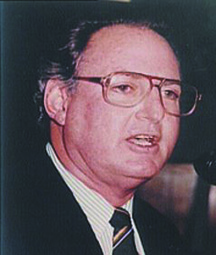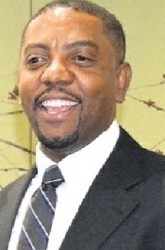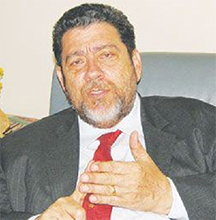IN the unlikely event that Dave Cameron loses the presidency of the West Indies Cricket Board (WICB) in the March 7 ballot, a document before the directors recommends that he remain in office until the end of the current financial year before handing over to his successor.
It would become WICB policy and obtain to any future president or vice-president.
Its purpose, as outlined in a document first discussed by WICB directors at their December 13 meeting in Port-of-Spain and further considered at their most recent assembly in St.John’s on January 10, is “to allow for a proper induction period and an introduction to the related structures of the WICB, such as the ICC (International Cricket Council)” for an incoming president or vice-president.
To be accepted, the proposal would have to be supported by the directors as well as the six WICB’s regional members – the Barbados Cricket Association, the Guyana Cricket Board, the Jamaica Cricket Association, the Leeward Islands Cricket Association, the Trinidad and Tobago Cricket Board and Windward Islands Cricket.
Under the system that has existed since the first meeting of the board on June 18, 1927, the president or vice-president demit their positions immediately after losing an election or on retirement.



So it was when Cameron came to office on March 27, 2014 after board delegates voted 7-5 in his favour over the incumbent Julian Hunte. His running mate, Emmanuel Nathan, defeated Barbados Cricket Association (BCA) president Joel Garner 8-4 for the vice-presidency.
Explaining the reason for the change, the document maintains that an immediate transfer “creates a steep learning curve for the individuals assuming the reins of power”. The new arrangement is “an attempt to bridge that gap”. It is, it added, “a first step in a succession plan”.
Under that plan, there would be an “extensive handover process” from the defeated official in the subsequent months leading up to the end of the financial year. In the interim, the new president would be referred to as the president-elect and the vice-president as the vice-president elect.
So far, there have been no nominations for the posts of president and vice-president although it is virtually certain that Cameron and Nanthan will seek reelection. Nominations close on February 5, with each candidate required to have a seconder.
Cameron, the 43-year-old Jamaican financier who served as head of the WICB’s marketing committee for four years before becoming Hunte’s vice-president for another six, has endured turbulent times in his first year at the helm.
In October, he oversaw the unprecedented, premature abandonment of the tour of India by players disgruntled by new contracts signed on their behalf by the West Indies Players Association (WIPA) but presented to them on arrival in Delhi. They were adamant that it included terms with which they did not agree.
When Cameron rejected its advice to fly to India to negotiate with the players, the Board of Control for Cricket in India (BCCI) held him personally responsible and presented a claim to the WICB for US$42.9 million in compensation for overall losses from 17 unplayed days cricket.
The issue remains unresolved. If the BCCI does not relent, it could wreck a virtually bankrupt WICB.
A Task Force, set up by the WICB itself to investigate and report on the abandonment, found all three parties in the dispute – the WICB, the WIPA and the players – culpable.
There have been mounting calls for Cameron’s resignation, most notably from prime minister of St.Vincent and the Grenadines, Ralph Gonsalves.
He has accused Cameron of going back on his “solemn word” that there would be no discrimination or victimization of the players in India. That was followed by the omissions of Dwayne Bravo, their chief spokesman, and Keiron Pollard from the World Cup squad.
Gonsalves said the undertaking was given at a meeting he arranged in Port-of-Spain that brokered a provisional agreement between representatives of WICB, headed by Cameron, the West Indies Players Association (WIPA) and the players.
And he wasn’t buying the explanation from Cameron and chief selector Clive Lloyd that the selection was made strictly on merit.
At the height of the crisis, Cameron wrote on his Twitter account: “They’ve criticised you. They’ve doubted you. They’ve lied on you. They’ve done all they can do, but one thing they can’t do is stop you.”
It is clear he is confident of staying in office without recourse to the latest proposal.




